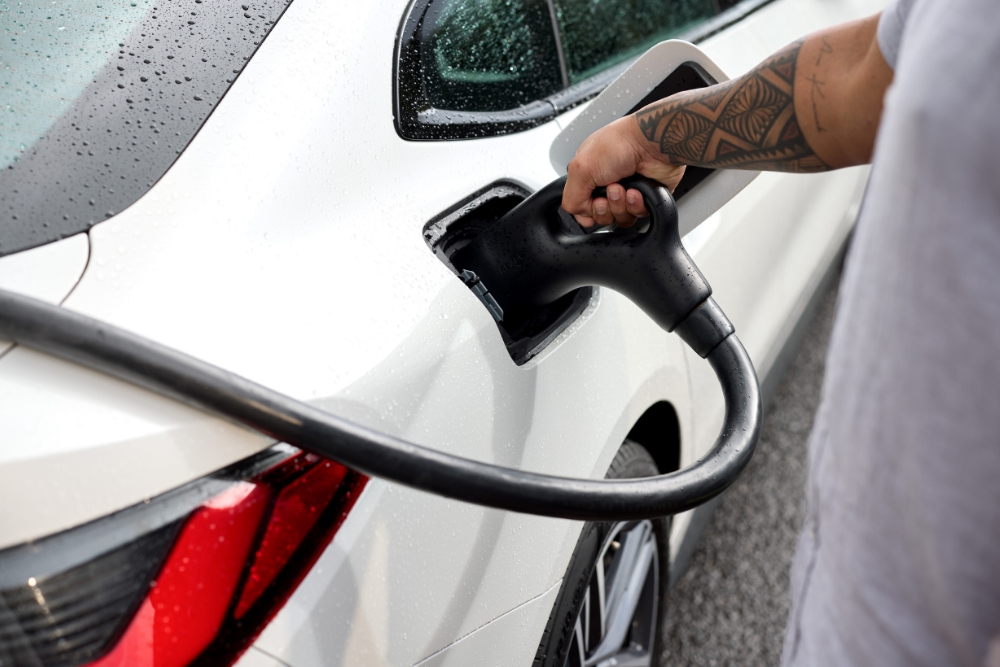Car leasing or purchasing: which is most cost-effective?
By SG Fleet | 14 May 2025

These days, the ways we pay for cars are more flexible than ever. The question isn’t just what vehicles to use, it’s how to access company cars in a way that’s cost-effective. Often, you’ll find the decision comes down to choosing between outright purchase, car finance, or car leasing. There are pros and cons to each option, so looking at the total cost of ownership is a good place to start.
What you really pay when you buy
Buying a car with cash or through car finance means paying off the full value of the vehicle, plus interest if it's financed. That might sound simple, but the numbers add up pretty quickly.
Depreciation
A new car loses value the second you drive it away. By the end of year one, most models lose 15-35% of the sticker price you paid for them. After three years, that can jump to as much as 50%. That drop isn’t a notional amount, it’s cash you’re not going to see again.
Upfront and ongoing costs
Even with car finance, a deposit is usually required, and monthly payments tend to be higher than leasing. On top of that, you’ll need to budget for maintenance, servicing, MOTs, and unexpected repairs once the warranty expires.
Selling it on
Eventually, you’ll need to resell the vehicles or part-exchange them. That means time, effort, and likely accepting a lower price than you’d hoped for.
Buying outright can work if you plan to keep a vehicle or fleet long term. But if you want to stay flexible and have options to switch up your vehicle fleet, it’s often the costlier route.
How does car leasing stack up?
Car leasing your business vehicles gives you access to cars for a fixed term, with regular monthly payments and no ownership at the end. That lack of ownership shouldn’t put you off, though. It’s what makes it cost-effective.
Lower monthly payments
You’re only covering the vehicle’s depreciation during the lease term, not its full value. This keeps costs lower than repaying a full loan through car finance.
Fewer financial surprises
Most car leasing agreements include servicing, maintenance, and breakdown cover as add-ons or bundles. Your finance department knows what they’re spending every month, and can plan accordingly.
No resale hassle
Once the lease is up, you return the car. No part-exchanging, no depreciation stress, no private sale admin.

What’s the smart play for businesses?
When a business provides a company car, cost and tax implications matter. With company-provided vehicles taxed as a Benefit-in-Kind, the key to cost-effectiveness can often lie in emissions.
Fully electric vehicles, for example, attract a Benefit-in-Kind rate of just 2% in 2025, though this is set to change over the coming years. For petrol and diesel cars, the tax is much higher and tends to be more complicated.
Depending on the emissions band the vehicle falls under, it could see rates anywhere from 15% to 37%. This can mean thousands in savings for the employee, and less National Insurance for the business. The tax structure makes a compelling case for switching to electric via a company car lease.
This is where salary sacrifice can help
Salary sacrifice lets your employers give up a portion of their gross pay in return for a leased car, preferably an electric or low-emission model. This brings down their taxable income and gives them access to a brand-new company car at an affordable cost.
Let’s crunch the numbers on a car with a monthly lease cost of £500
A 20% taxpayer would save £150 per month through reduced income tax and National Insurance. A 40% taxpayer would save £210 per month. They’d pay around £15–£30 per month in company car tax (depending on their bracket). The net cost could be as little as £320 to £365 per month for the employee.
Meanwhile, the business saves £50 in National Insurance contributions for that employee. That saving could be kept by the business or used to reduce the lease cost even further.
It's not just about the maths, either.
Salary sacrifice schemes make it easier for companies to hit sustainability targets, cut admin, and boost their benefits offering, all without increasing overheads.
The total cost of leasing vs. buying company cars
When all costs are considered, leasing almost always comes out as the more cost-effective option over the short to medium term. Buying only really edges ahead if you hold on to the vehicle for many years.
- Lower monthly outgoings
- Predictable costs
- Less risk of big maintenance bills
- Tax efficiency for low-emission models
- No resale value uncertainty
For many, the goal isn’t really to own a car, it’s to use one that’s safe, reliable, and affordable. Car leasing does just that, without the complications of ownership.

Want cost certainty with your company car fleet?
At SG Fleet, we specialise in helping you access the right car in the most cost-effective way. Both through our award-winning salary sacrifice schemes and traditional company car lease options, we offer full support to set up and manage everything with minimal admin.
Our fixed monthly payments cover everything from maintenance to insurance (except fuel or EV charging), so you can offer your team a standout benefit while keeping costs predictable and low.
We’re the only provider in the UK offering both employer-led and employee-led salary sacrifice schemes. If you’re thinking about switching to leasing or want to cut your current vehicle costs, we’ll help you do it smoothly. Feel free to get in touch today with any questions.
FAQ
Is leasing only suitable for new cars?
No. With SG Fleet, you can access any used or new vehicles on the UK market. This can lower monthly costs even further while still offering warranty and servicing options.
Are electric cars cheaper to run than petrol or diesel?
In most cases, yes. Electricity is cheaper than fuel, and EVs tend to have lower servicing costs. Plus, they attract a lower Benefit-in-Kind tax for company car use.
Does car leasing include insurance and maintenance?
Yes, with SG Fleet. Our solutions make leasing and salary sacrifice schemes easier than ever, with the only cost you need to bear in mind being fuel or EV charging.
Do EVs and low-emission vehicles still avoid road tax?
According to the UK government, 'electric, zero and low emission cars, vans and motorcycles are now subject to the vehicle tax rates that were introduced on 1 April 2025. This change applies to both new and existing vehicles. The amount you’ll need to pay depends on the type of vehicle and when it was registered.' You can find out more here.


.png)


.png)
.png)
.png)